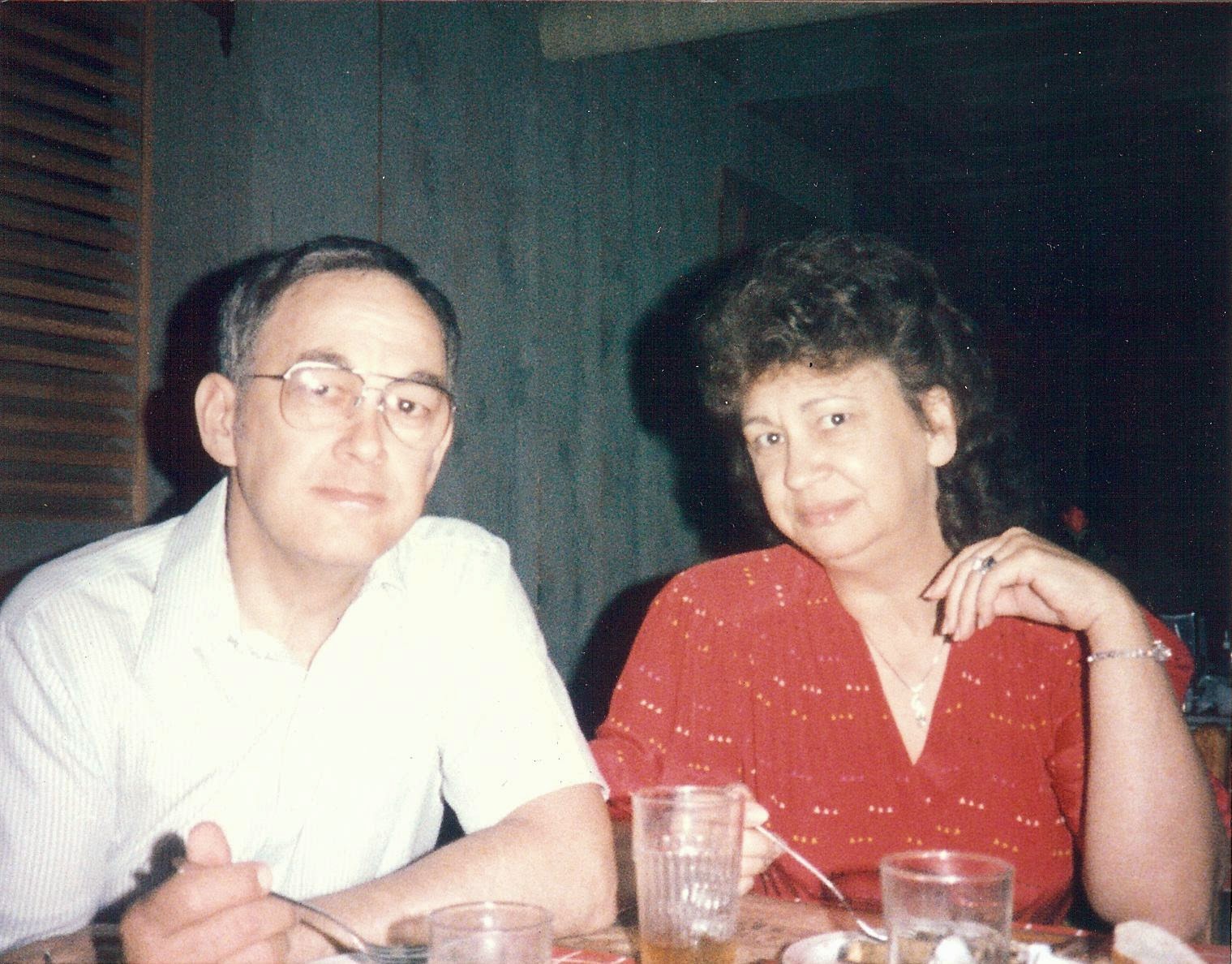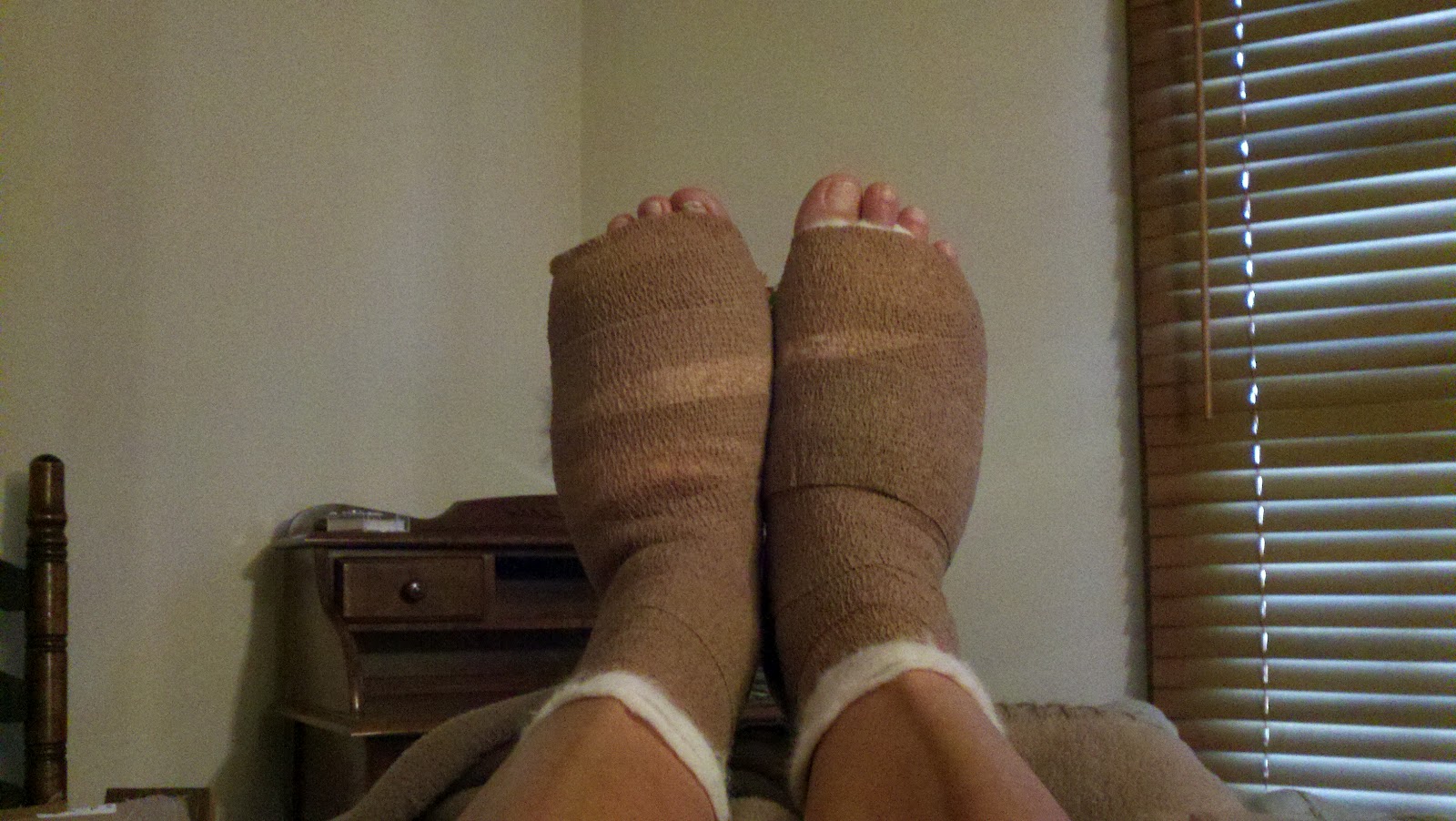Gratitude for Caregivers
NOVEMBER is (among other things) NATIONAL CAREGIVER MONTH!
I had the privilege of being interviewed for this post: Attitude of Gratitude: Sarah Cannon Blog
I have done my share of caregiving in my life. I have also been on the receiving end.
And I'm thankful for both experiences.
BEING the Caregiver:
 |
| My mom and Uncle Gene |
My mom was diagnosed with terminal colon cancer in 1986 and passed away (two weeks after her 49th birthday) in 1987. I was one of her primary caregivers. Those seven months were among the hardest, but also some of the most satisfying and rewarding months of my life. I wouldn't take anything for that time with my mom and the memories of our relationship flourishing into something it had never been prior to her illness.
My ex-husband had many issues from mental health to numerous surgeries. I had plenty of caregiving duties in that long, abusive marriage. Unlike caring for my mom, caring for an abusive husband was unrewarding. There was little gratitude outside of the desperate moments. I had no value apart from meeting needs and demands. Sadly, I didn't earn "personhood" or gratitude or respect for any of my sacrifices or for my devotion. I was grossly unappreciated. But I still do not regret being a devoted caregiver. The reward for that period of time came much later, but it came nonetheless. And all those experiences equipped me to be a better friend and mentor in my present life.
 My dad was healthy until he hit the age of 60. And then he was diagnosed with Parkinson's and CLL, which were followed by triple bypass surgery and several other surgeries over a period of years. I was not his primary caregiver. My brother was. And he did an excellent job right up to the end of my dad's life in March of this year. Dad lived with my brother's family for over three years. I am so proud of Todd and Sue (his wife) for the way they unselfishly devoted themselves to Dad's care and needs. But I'm more than proud, I'm grateful. Their care for him was a gift to our whole family, not just to Dad.
My dad was healthy until he hit the age of 60. And then he was diagnosed with Parkinson's and CLL, which were followed by triple bypass surgery and several other surgeries over a period of years. I was not his primary caregiver. My brother was. And he did an excellent job right up to the end of my dad's life in March of this year. Dad lived with my brother's family for over three years. I am so proud of Todd and Sue (his wife) for the way they unselfishly devoted themselves to Dad's care and needs. But I'm more than proud, I'm grateful. Their care for him was a gift to our whole family, not just to Dad.
My husband was diagnosed with CLL in 2007. His mom was diagnosed with CLL a few months later in 2008. I am the primary caregiver for both. I have kept records of their journey. I thoroughly researched prognostic markers, other patients' experiences, specialists, treatments, you name it, wanting to make sure they were well-informed about every decision they would be confronted with.
I accompany them both to every doctor visit, treatment, bone marrow biopsy and CT scan. I sat beside them during every infusion they ever received. I helped see my mother-in-law through a touch and go bout with pneumonia in 2011. She was in the hospital for three weeks. I spent almost every day with her and many nights in the hospital. She lived in our home for several months while beginning a clinical trial, since she had weekly and then bi-weekly appointments in Nashville and lives in Evansville. (I suggested she stay with us rather than making so many three hour drives back and forth.) And then she spent some time with us after her pneumonia because the recovery was a process even after being released from the hospital.
My caregiving role these days is light in responsibility. John and Marian are both in a long season of remission as a result of treatment with Zydelig (formerly CAL-101/Idelalisib). Both are in good health and living unrestricted lives. Marian is 82 and she's still hitting the dance floor on a regular basis. John takes more time for himself than he ever has, coming home earlier than he used to and planning frequent getaways for rest and relaxation. But when we're home, he's still at the dealership six days a week and arrives there between 6:00 and 6:30 am. He doesn't have a lot of energy by the end of the day, but he has far more energy than I have in the morning.
Neither of my patients are in need of my constant attention physically, but I still try to look out for them in little ways. And I'm always here for emotional support if needed. I will always go along as an extra set of ears for every doctor visit. And both know that should we hit another bump in the road (there have been several in the past), they have me to lean on in whatever way they need me.
NEEDING the Caregiver:
In 2012, I had bilateral foot surgery to remove Morton's Neuromas in both feet. We were right in the middle of relocating from Tennessee to West Virginia. I scheduled the surgery immediately following the delivery of our furniture to our new home. I spent the weekend getting everything set up and unpacked as much as I could. And then I drove back to Tennessee for the outpatient surgery. A very sweet friend offered to be MY caregiver in the first couple weeks of my recovery. She took me where I needed to go and made me oh-so-comfortable in her home. John had to be at the new dealership. I knew I was better off spending those first two weeks with a friend and close to my surgeon's office just in case I had any issues or complications. My recovery went smoothly. And once I was ready, John came to Tennessee and retrieved me. I still had to spend weeks resting my feet as much as possible. But at that point I was not in need of a caregiver.
Twice in my life I have suffered with frozen shoulder. I once spent weeks incapacitated by a fissure in a delicate area. And I've been stopped in my tracks by sciatic nerve pain a couple of times. Although short in duration compared to lifelong suffering, all these episodes of chronic pain felt long and excruciating to me. And there is a huge difference between the times when I had a loving caregiver (John) and when I did not have a compassionate companion.
I elaborated on all these caregiving experiences to illustrate that we will all be on both ends of the caregiving experience in our lifetimes. If you haven't been both the giver and the recipient yet, I assure you that you will be. And there is much to learn from both experiences.
There is a blessing in each opportunity.
Obviously, we feel blessed when someone comes to our side willingly and because they want to -- not purely from a sense of duty. Every time I told my brother how much I appreciated what he was doing for our dad, he assured me he was doing it because he wanted to, because he loved Dad and he knew he was the obvious person to step into the role. He and Dad were always very close.
I have embraced caregiving opportunities because I wanted to as well. Caring for my abusive ex-husband was definitely the most "duty-oriented" and the least rewarding because I felt so unappreciated and taken for granted. I was manipulated constantly and struggled with unreasonable emotional demands. But I can look back on those times now with a sense of satisfaction that I loved unselfishly and without reciprocation. I feel good about the effort I made to be a good wife and caregiver despite the outcome of the relationship and the lack of gratitude received. Why? Because the way I responded to those challenges says something about my character and the person I am. And it is that much sweeter to care for loved ones in my present life who do appreciate every little thing I do for them, having the contrast between now and then.
Caregiving is rewarding, but not easy.
When you are the caregiver for someone in a health crisis, your life is not your own for a while. Your normal routine goes on the back burner. Sometimes you feel like you, as a person, are on a back burner. And when you are caring for a demanding and ungrateful person, you don't even feel like you have a burner. The one common aspect of every caregiving experience, though, is that you need to make sure you have emotional support in whatever way that is meaningful for you.
Don't be a martyr!
Lean on friends or other family members who are available for you. And don't beat yourself up for being human. You won't respond to every situation perfectly. You will occasionally have selfish thoughts and feelings. You'll want to run away and catch your breath (not literally, but emotionally). You may crave solitude. You'll need breaks. Be assured that you are normal in all these perceived weaknesses.
When my mother-in-law was staying with us, I sometimes imagined (in a rather paranoid way) that she was mentally observing everything I did (and didn't do) on a daily basis. I projected thoughts and opinions onto her -- mainly from my own insecurities and my long history of feeling the weight of others' expectations of me. Fortunately, my mother-in-law loves me unconditionally and I can admit stuff like this without repercussions. She really cared about my feelings and my stress. And she was always expressing gratitude, which affirmed me and reminded me how much I really wanted the role of her caregiver. I would do anything for her. And I know it goes both ways. I am blessed with an amazing mother-in-law. And it means the world to me that she feels the same way about me as a daughter-in-law. (Hopefully that doesn't sound boastful.)
My hope in sharing these caregiving experiences is that you will be inspired in both roles. Whether you are the one giving care or receiving care, it's equally important to communicate love, value and compassion. When it comes to things like chemotherapy and pneumonia, it seems to me like it would be harder to be the patient than the caregiver. But I've heard many patients (including my husband) say that he thinks it's harder to be the caregiver. I think it's probably an apples and oranges kind of comparison. Both roles are challenging. GRACE is needed in both directions.
It's always helpful to put yourself in someone else's shoes.
If you've only been on one side of this experience, perhaps this post has given you insight as well as inspiration. We all need to give and receive care, even when there is no crisis. But when a person is dependent on the care of others, it's essential to make sure that person feels valued and not burdensome. Remember that, in most cases, they would be doing the same for you as you're doing for them if the roles were reversed. (Unless, of course, you're sure that would be not be true. And, in that case, you can laugh privately about the irony.)
I assure you of one thing: You will still reap the love you sow. God will simply find another avenue for blessing you if you are not blessed with a grateful recipient of your care.


Comments
Michelle Simmons @ Comfort Keepers